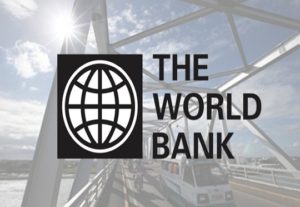
 The World Bank Board of Directors has approved a $180 million International Development Association (IDA) credit to support Senegal’s efforts to enhance the policy and institutional framework of the energy and the Information and Communication Technologies (ICT) sectors and to build a sustainable digital economy.
The World Bank Board of Directors has approved a $180 million International Development Association (IDA) credit to support Senegal’s efforts to enhance the policy and institutional framework of the energy and the Information and Communication Technologies (ICT) sectors and to build a sustainable digital economy.
The multi-sectoral structural reform Development Policy Financing (DPF) operation has supported the Government’s efforts over the past year and half to strengthen the governance and management of the energy sector to reduce costs, improve reliability and facilitate equitable access, the World Bank said in a press release.
The program also contributed to enhance the legal and regulatory framework of the ICT sector to promote competition, investment and equitable access while strengthening the policy, institutional, and financial foundations of the digital economy.
“ICT and Digital Economy are central to Senegal’s competitiveness and economic transformation,” said Louise Cord, World Bank Country Director for Senegal. “Priorities in ICT include improving governance of the sector; opening the market to competition and investment across all segments of infrastructure; and facilitating universal access, thanks to a concession of the unused capacity of the vast government fiber optic network,” she added.
Louise Cord also stressed that energy in Senegal is expensive and subject to swings in oil prices, and energy access in rural areas is also low (40%). In this context, the reform program supported by the DPF will strengthen the utility financial position and prepare the ground for a swift transition to the use of gas for power generation, as the best way to reduce electricity costs.
According to Paolo Zacchia, World Bank Program Leader, “with the measures taken in the energy sector, the government has secured the institutional financing of the electricity sector, and established a strategy for the energy transition to natural gas with a clear division of roles between the public and private.”
On the digital economy, Senegal has a new Telecommunications Code to strengthen the quality of governance in the ICT sector and improve competition. The government has also created a National Digital Council to promote the implementation of the Senegal Digital Strategy 2025 project, “such as an open and transparent concession of excess capacity in ADIE’s public network,” he added.
